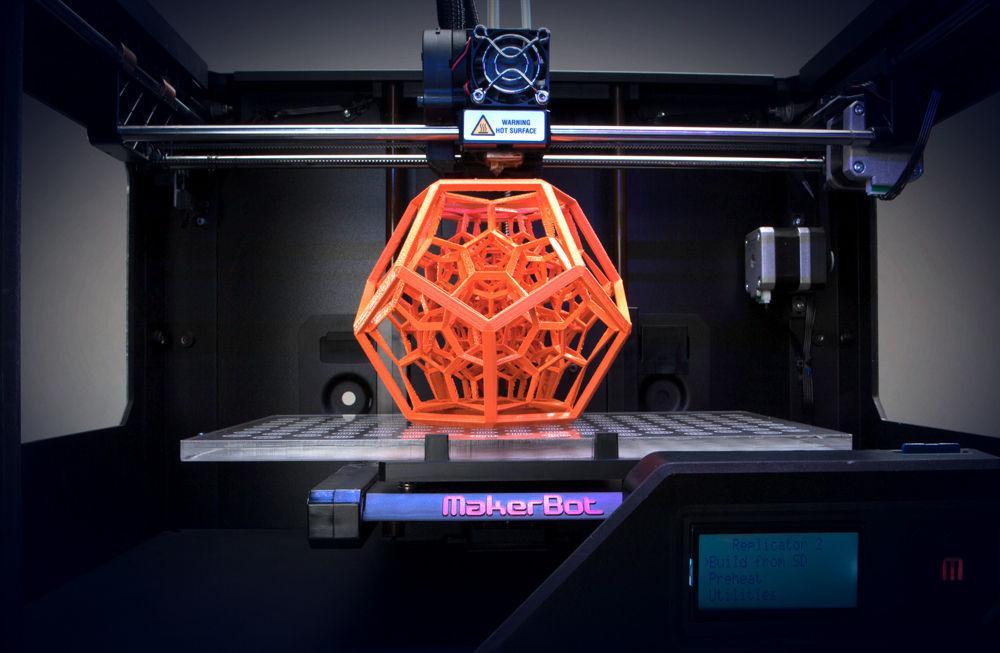With 3-D printing technology becoming more widespread and affordable than ever, it won’t be long before you have the power to personally create whatever you desire in the comfort of your own home. However, corporations aren’t going to let you have that power without a fight.
Imagine a near future where you can print anything you want: cars, toys, computers, guitars, jewelry and even prosthetic limbs. The possibilities are endless.
Combined with the power of the Internet, the capabilities of 3-D printing become even greater. Users can create, modify and share 3-D printing with others. Even now, websites such as Thingiverse and YouMagine have thriving communities of creators who are constantly adding printing plans.
Moreover, 3-D printing offers a possible solution to rising levels of income inequality. Rather than purchasing a $20,000 car and taking on debt, a low-income family could make one using a cheap 3-D printer and materials. Ford is already working on 3-D printed car parts, so this scenario is not outlandish.
Problems arise, however, when 3-D printing begins to cut into the profit margins of the corporations that manufacture and sell those products. The more people begin to use 3-D printing, the more these companies stand to lose.
In fact, it won’t be long before 3-D printing and other emerging technologies threaten the very livelihood of capitalism itself, according to economist Jeremy Rifkin.
But corporations are going to go down swinging. It won’t be long before companies begin using their government influence to push anti-3-D printing legislation to protect their profits.
The foundation for anti-3-D printing laws is already in place. You know how it’s becoming more difficult to pirate movies online? Of course you don’t. Poor college students wouldn’t do that.
But if you were to try to find a free movie using Google, you might see a message explaining that the search engine has been forced to remove certain search results because of the the Digital Millenium Copyright Act.
The DMCA criminalizes production and distribution of technology meant to circumvent controlled access to copyrighted works. It’s not difficult to see how such anti-pirating legislation could be used to stifle access to 3-D printing.
Suddenly, that family who printed a car — based on designs by Ford — is sued by the automaker for copyright infringement. Imagine those people who were sued for millions for pirating a few songs, only much worse.
In fact, legislators could force search engines to remove access to 3-D printing plans just as they have with pirated movies. They might even attempt to ban 3-D printers altogether, based on the grounds that they can be used to circumvent copyrights.
Even without copyright laws, corporations could find other reasons to ban 3-D printers.
You may have heard about 3-D printing in the news when gunsmithing group Defense Distributed created the world’s first 3-D printed gun. How long before legislators try to ban 3-D printing on the grounds that it could be used to circumvent gun control laws?
Both copyrights and gun control are serious issues. However, my fear is corporations will blow them out of proportion and use their influence to ban or restrict access to 3-D printing.
If you like the idea of a future where access to goods is in your hands rather than corporations, the best thing you can do is stay vigilant.
Support politicians who embrace technology and know how to use it for the betterment of society. Do not fall for fear-mongering campaigns backed by corporations with a stake in banning 3-D printing.
3-D printing is a democratizing technology that could truly present a challenge to the unequal capitalist system we have today. It is up to us as citizens to stand against corporations that would seek to impede our path to a more equal future.
Alex Mendoza is a 22-year-old political science and international studies senior from Baton Rouge. You can reach him on Twitter @alexmendoza_TDR.
Opinion: 3D printing challenges capitalism, but corporations will not go down without a fight
By Alex Mendoza
April 29, 2015
More to Discover








